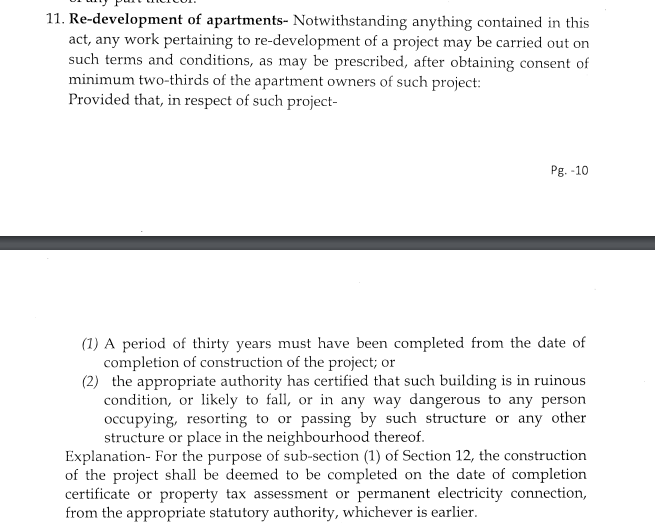The Tamil Nadu Apartment Ownership Act, 2022 is a new legislation that could potentially safeguard the interest of apartment owners and improve the administration of common areas and facilities. It has been stated that every apartment should get registered under the new Act. While the legislation was notified recently, the Government is yet to come out with the rules and regulations for the Act.
Some important considerations of apartment owners must be taken into account and reflected in the rules for the aim of the legislation to be met.
Stakeholder inputs on Apartment Ownership Act
While framing the rules under the Act, the draft of the same should be widely circulated through various publications to ascertain the views of the various stakeholders.
A new entity should be created exclusively to facilitate the seamless registration of associations, as under the Act, apartments with more than four units are to be registered. The registration should be made affordable to the apartment owners.
The procedure to get the apartment registered should be simplified so that it can be handled by the residents themselves without any aid or additional expenditure towards the same.
Read more: All you should know about forming an RWA in Chennai
Apartment Ownership Act should provide room for views of residents
While the authority can come out with general bye-laws, and a methodology for collecting the maintenance charges, the adoption of bye-laws either in full or in part, and the collection of maintenance charges either on a uniform basis or square foot rate should be best left to the discretion of the residents.
In the said Act, with regard to the redevelopment of apartments, it is stated that any redevelopment may be carried out on such terms and conditions, as may be prescribed either with the consent of not less than two-thirds of the apartment owners of the project.
Redevelopment can also be carried out if the appropriate authority has certified that the building is in a ruinous condition, or in such a state that it may endanger the lives of the occupants or any other person.
It must be stated that most of the apartments constructed decades ago are structurally strong without signs of major withering. This is primarily because of the material used for the construction and the methods adopted during construction.
The same cannot be said of present-day buildings. The collapse of an under-construction tenement at Chennai’s Moulivakkam in the year 2014 is still fresh in the memory of Chennaiites.
That said, due to the age of the building, there could be damages and this again is caused due to poor upkeep and maintenance by the apartment owners. While such damages need to be repaired as and when they crop up, it does not signal that all is not well with the structure.
Further, redevelopment does not necessarily mean the demolition of the whole structure. The building can always be refurbished.
In view of the above, the apartment owners cannot take refuge under the redevelopment clause to browbeat co-owners who may have different opinions on redevelopment.
In the olden days, the apartments were built on the ground floor and with additional floors on top of the same. These apartments face problems of inundation during the rainy season due to the height of the roads going up following relaying of roads by the civic body. It must be noted that when these apartments were built, the road level was three to four feet below the apartments. Besides flooding, the residents have to switch off power to their apartments to avert electrocution as electrical appliances such as main switches, and meters installed on the ground floor go underwater.
While this is a cause for concern during monsoons and needs to be addressed by the civic body, it cannot be a ruse to demand redevelopment of the entire structure.
Read more: How water meters saved time and money for this Chennai apartment
Apartment owners must work together for better living
While apartment living is gaining currency as many residents see it provides security and comes with many conveniences, it has its own pitfalls too. Many a time, one comes across a few residents not falling in line with the common ground rules and this results in the work relating to the larger apartment association coming to a grinding halt.
In many apartments, even major and essential repairs get stalled due to squabbling among the residents for petty issues.
A few residents defying the rules can have a detrimental effect on the larger apartment community. Thus a minority of residents often hijack the majority view. They often hold back payment of maintenance charges for reasons which are silly in nature, unmindful of the fact that it is this money that helps the association to carry out routine tasks like pumping water to overhead tanks, meeting expenses towards wear and tear, payment to staff, etc.
Whenever meetings are held, except for those who attend by virtue of their positions such as the President, Secretary and Treasurer, not many think it necessary to participate. Further, the residents do not come forward to take up positions when the tenure of the previous office bearers ends. The meetings always conclude without transacting any business. This trend is seen in many apartments.
In the case of apartment owners who do not reside on the premises, many are satisfied with the receipt of rental income without concerning themselves with issues faced by residents. Most of the time, the owners who rent out their apartments do not undertake a background check on the tenants. They do not feel it necessary to keep the association informed of the details of the tenants either, leading to myriad issues.
With the regulation of apartment living with the Apartment Ownership Act, it is time that the residents realise the usefulness of living together and shed their parochial attitude and work for the betterment of living conditions for all.
